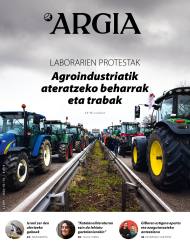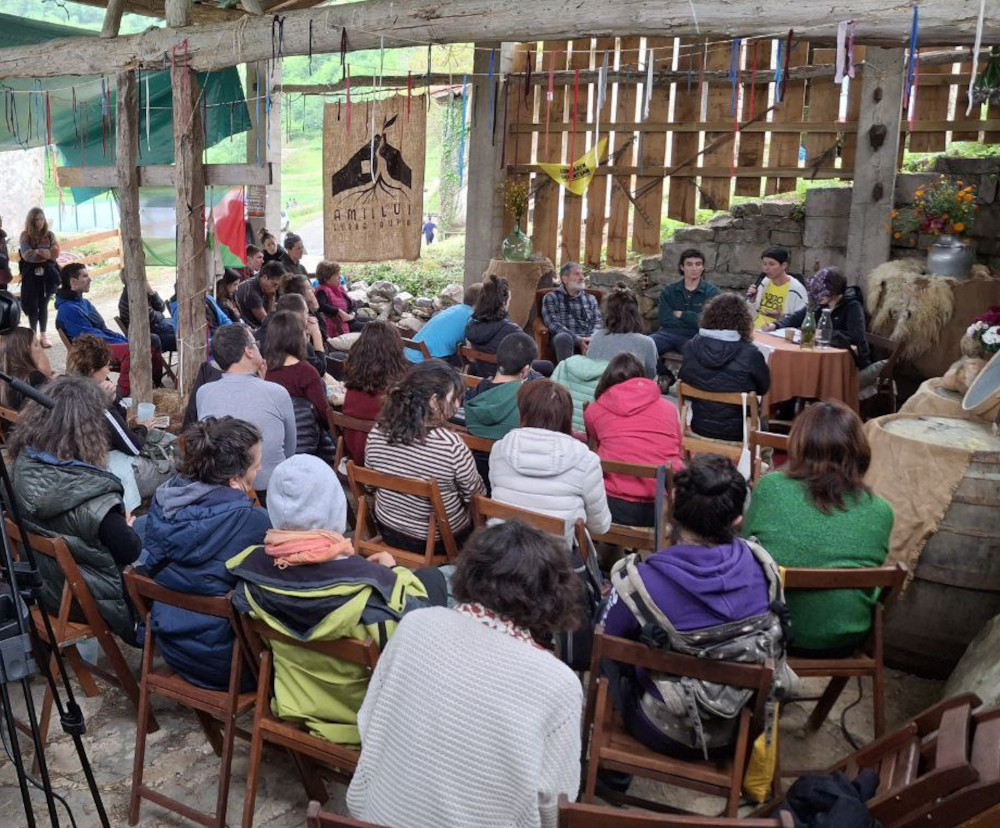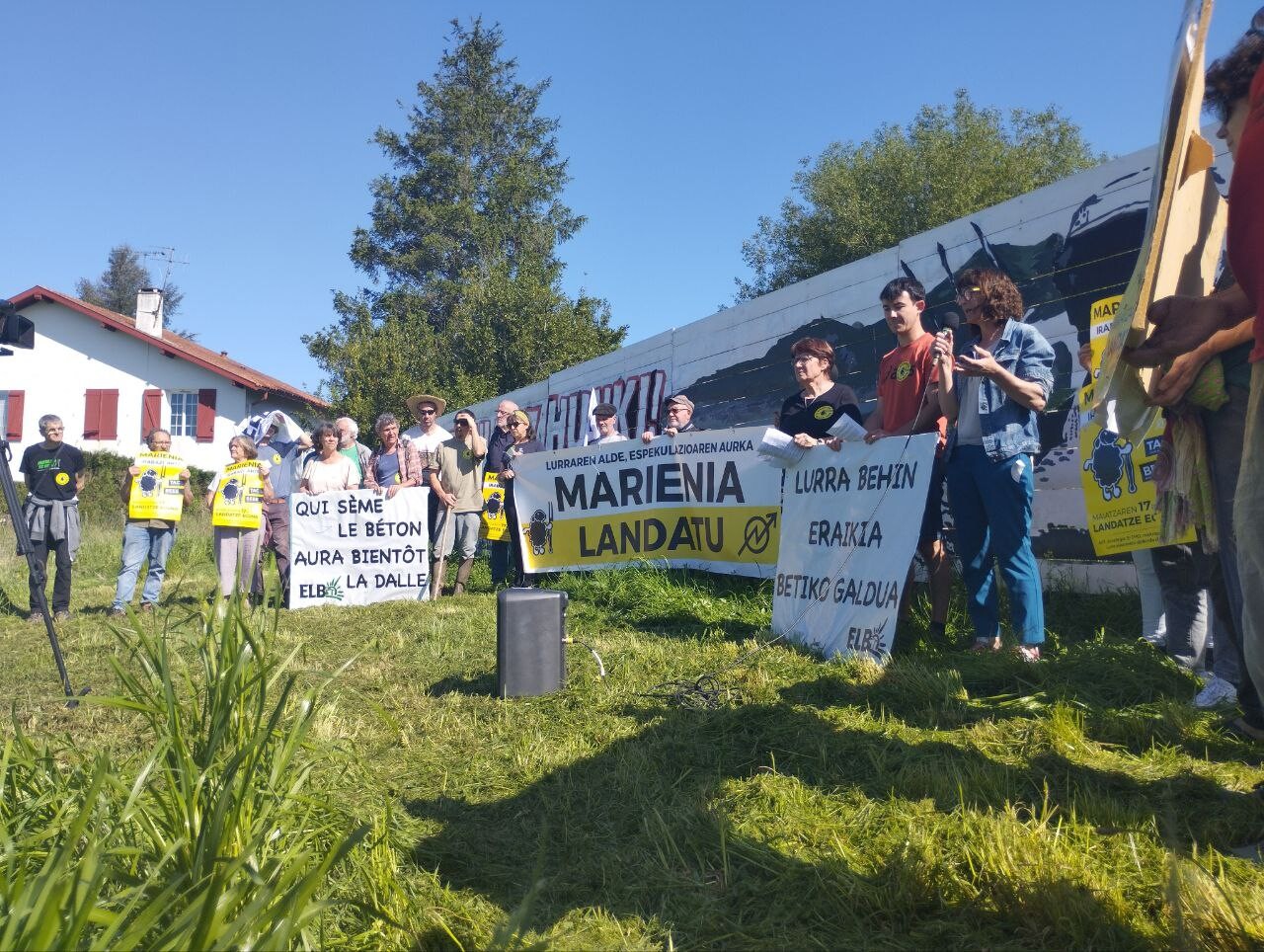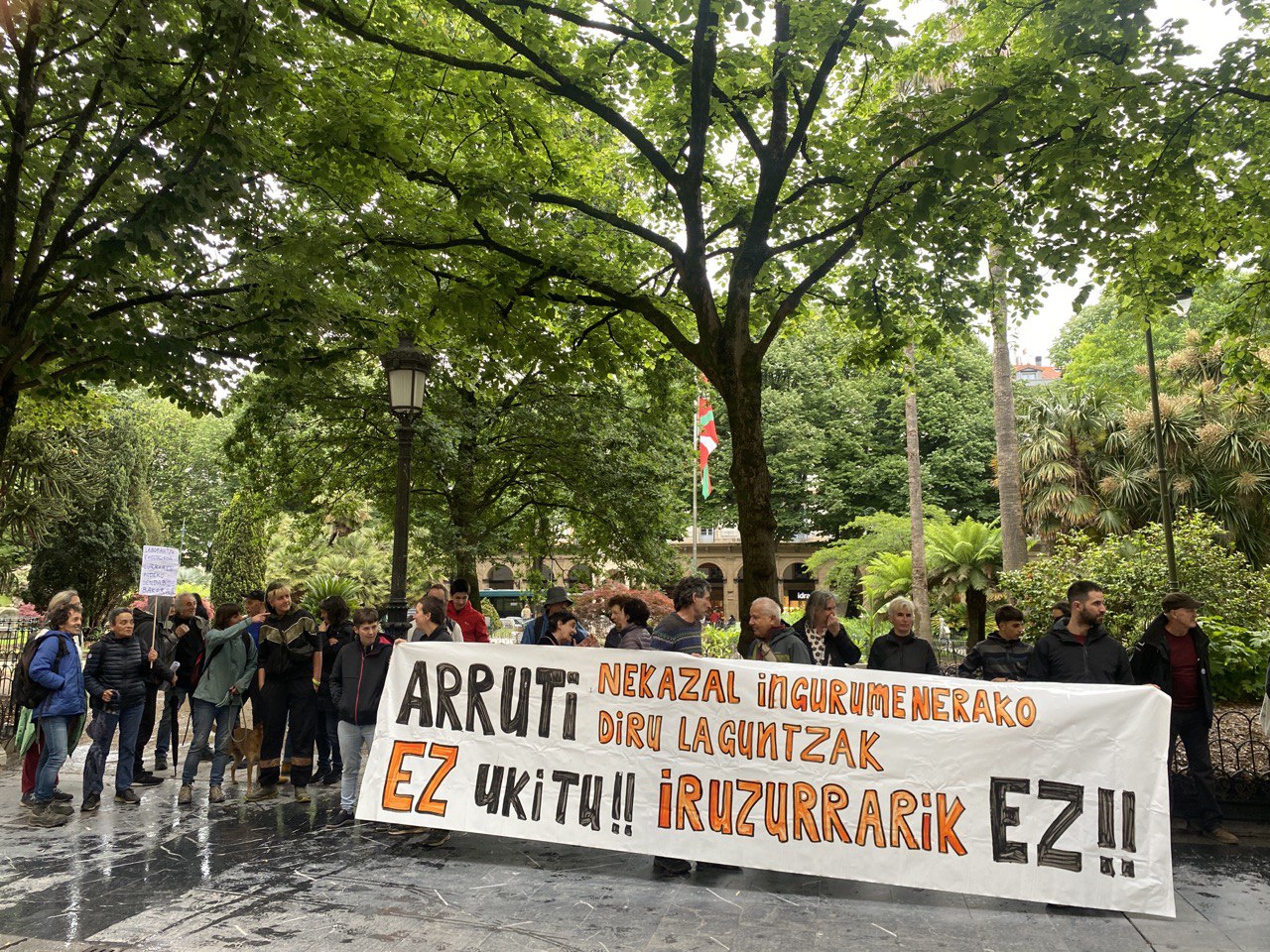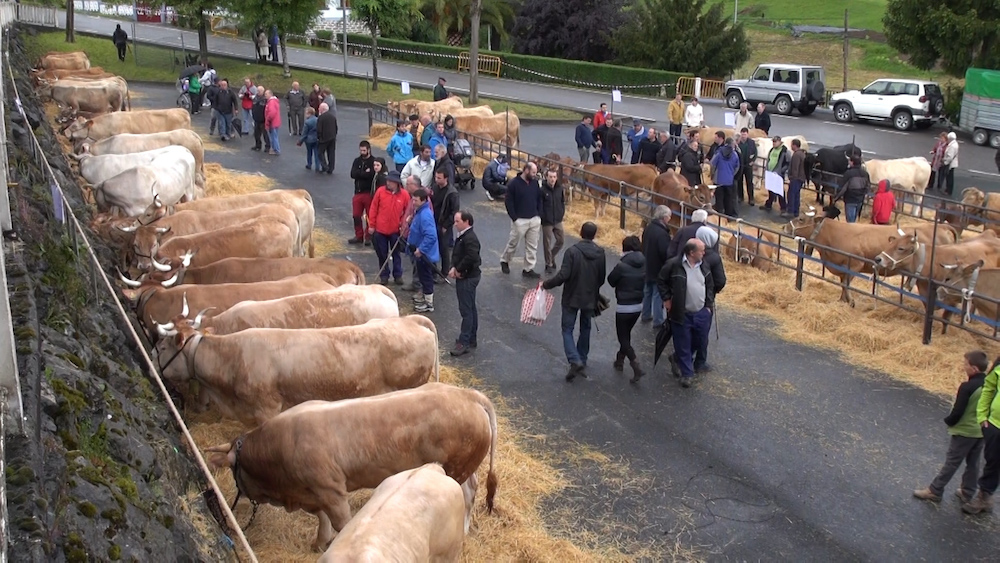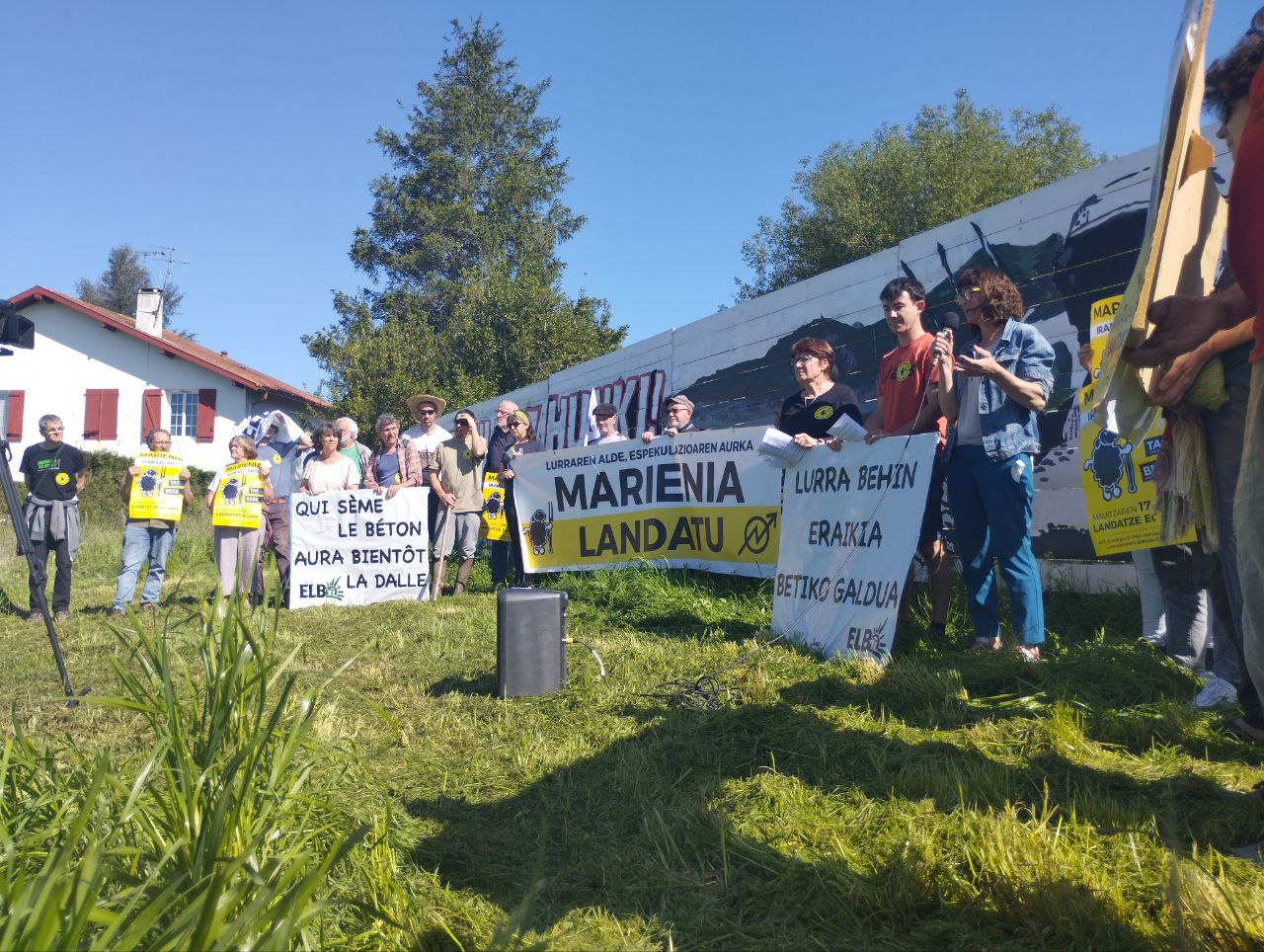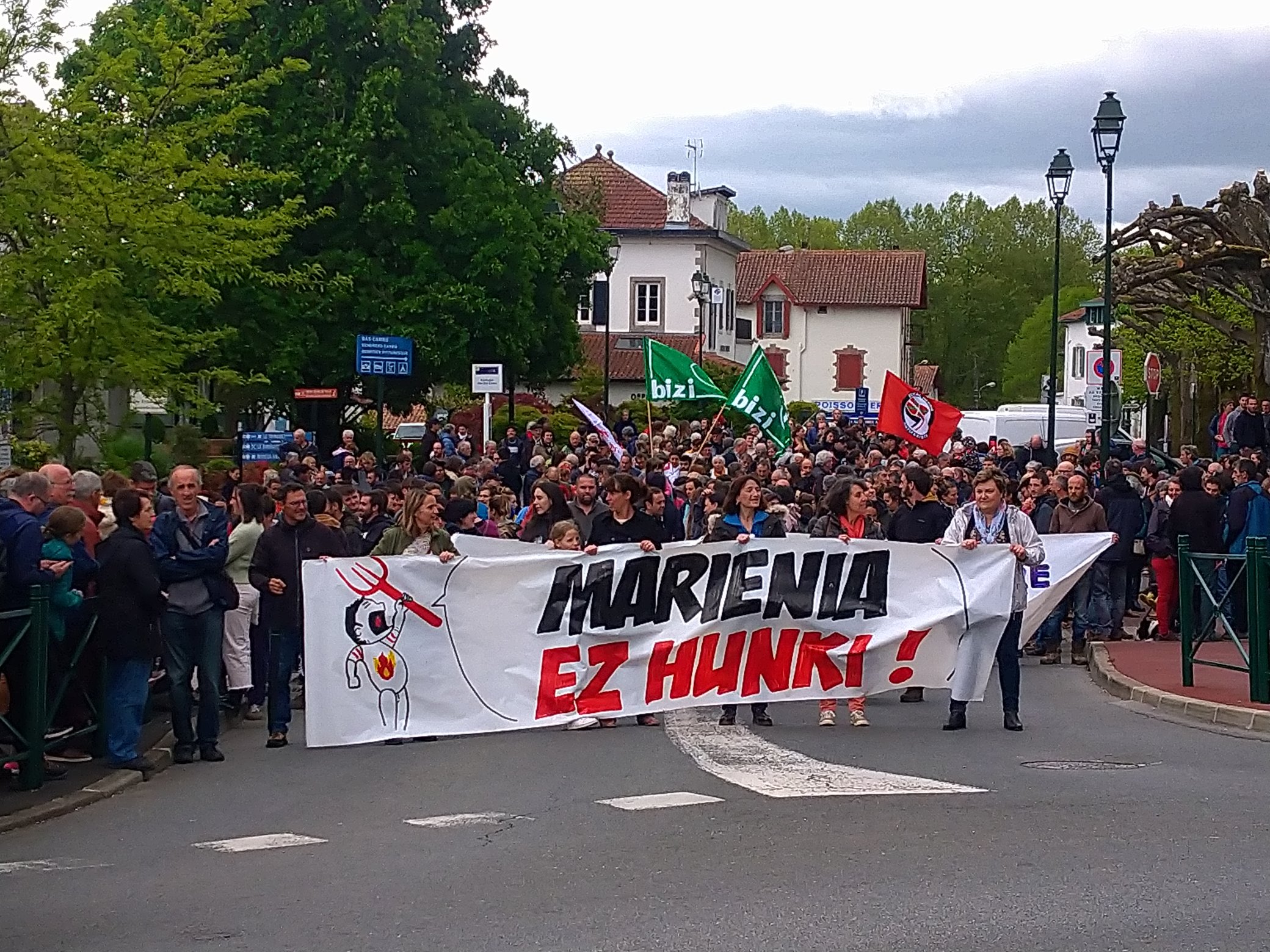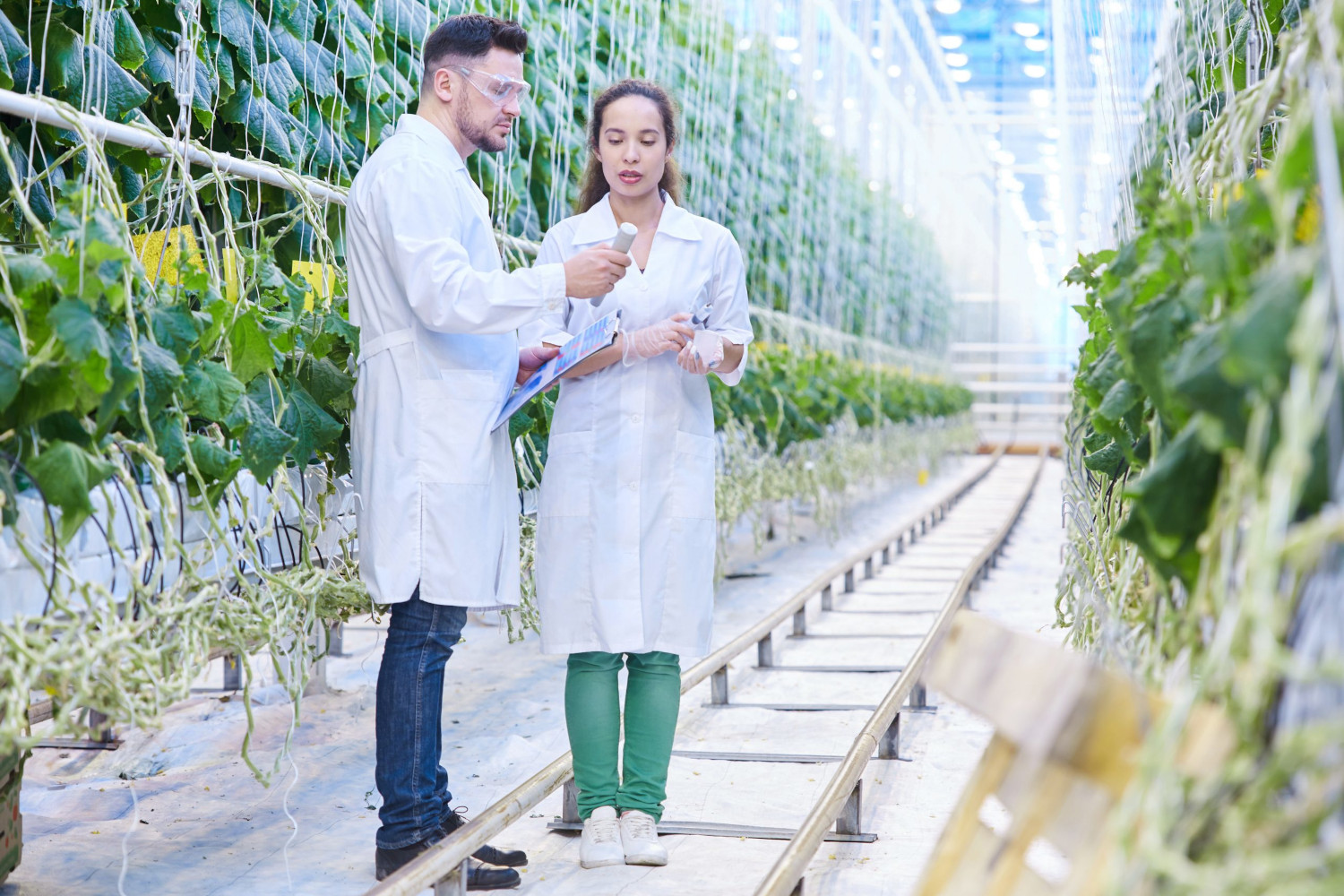The question of the cultivation model is the basis of the welfare of the peasants
- Basque Country, Greece, Netherlands, Germany, French and Spanish States, Italy... The farmers' protest in recent weeks is at European level. Stimulated by discomfort and complaint, the movement is expanding. Both the need to sell production at a lower price than it has cost, as well as unfair competition or the burden of the obligations imposed on them by the bureaucracy, have many reasons to go out into the streets. However, the eleven diseases have the same basis: Model of productive agriculture that begins the day after the Second World War. The agro-industrial model has been pushed to the extreme and its limits are evident. Farmers' representatives, however, do not question the same system. On the contrary, in order to continue with this model, they require the elimination of environmental measures.

Protests by farmers spreading at European level in recent weeks have highlighted the profound crisis in the primary sector. If a joint reading cannot be made of the demands of one or another union or of the demands of the asindical groups, we can come to a clear conclusion that serves all: The model of productive agriculture, which started the day after the Second World War, has been pushed to the extreme and has its parallel limits. While this finding has the approval of all parties, always leaving aside those in bad faith, the issue is complicated when it comes to the causes of the crisis and the solutions to be provided.
At a time when the FNSEA and JA trade unions in the Northern Basque Country and the French State have given a mandate to end the blockades and protest the peasants of Hego Euskal Herria and the Spanish State, it is becoming clear that the Common Agricultural Policy (CAP) and the market that does not guarantee a decent income to farmers are at the root of the crisis. In view of the responses of the French Government and the European Commission in general to the complaint, what is on the negotiating table has been clarified: it is about cutting the way to an ecological transition incompatible with agro-industry.
“That we have the Green Pact of Europe at the basis of the complaint of farmers from different peoples? It's possible. Is the European Green Pact the cause of farmers' difficulties?
Pierre-Marie Aubert
The FNSEA and JA trade unions, the promoters of agro-industry, and with the political power in their favour, were satisfied with the negotiations: By 2030 they have managed to suspend the Ecophyto Plan for France, which aimed to reduce the use of pesticides by 50%. They have also ensured that the Independent Biodiversity Agency, responsible for ensuring respect for environmental standards, is in the hands of the State. Similarly, agro-industrial lobbies are subject to the demands of the Whatsapp asindial groups in the Spanish state, the elimination of the 2030 Agenda for sustainable development, the mitigation of CAP conditions for the environment, including the obligation to abandon 4% of the surface.
Basque Country, Greece, Netherlands, Germany, French and Spanish State, Italy... The movement is European and from Europe there are responses in the same direction: on 6 February, European Commission President Ursula von der Leyen suspended the measure of reducing the use of pesticides by 50% by 2030 and the obligation to abandon 4% of the fallow land land land is quickly mentioned in Brussels.
France Culture en France, Allemagne, Pays -Bas: haro sur le Pacte Vert Européen (France, Germany, Netherlands: Pierre-Marie Aubert, researcher at the Institute for International Relations and Sustainable Development (IDDRI), said in his radio programme: "Do we have the Green Deal as a common denominator of the anger [of farmers from different villages]? It's possible. Is the Green Deal the cause of the farmers' difficulties? That's not." Maleruski, that is how the crisis has come to us and they are getting answers in line. At the end of the day, we have only to make lobbies for agro-industry. And it's not new. After the European decision to authorise glyphosate there is a toxic production by Lobby on 10 December last year, in the report we referred to the same subject and then there was no road cut for tractors.
In this period, however, pressure groups have absorbed the distress and despair of the peasants, and that is the dirty play of the powerful that the media keeps us hidden. In order not to be excessively obvious, a number of measures are being taken to improve the economic situation of farms, including the burden of CAP subsidies and the guarantee of immediate extraordinary economic aid.
Aware of this wandering, some 50 environmental groups from the French State soon joined the peasant movement: "To refute what the authoritarian speeches say that they intend to enrich even more, stimulating the propaganda of the government and cowardice it among us: we will continue to be their allies, because it is a vital issue." In the same vein, Confederation Paysanne, ELB and EHNE Bizkaia are also fighting, making agro-industry better and opening the door to agroecology.
.jpg)
Lobby machine to prevent changes
Water and land contaminated by pesticides; land impoverished by monoculture; unjust prices of financial fixation; loss of farmers’ sovereignty; weakening of biodiversity; disappearance of typical farms (five million European farms have disappeared in the last twenty years and another six million by 2040); precarious situation of multiple farmers; uncontrolled global merchandise of pesticides. These are the main limitations of the agro-industrial system. All this, moreover, in a context of climate crisis: 23% of the world’s greenhouse gas emissions come from industrial cultivation and, at the same time, farmers are the first victims of extreme weather events. Here we are.
Investigating the
two directions of cultivation, the
status quo and the
ecological transition, the
FSEC report has a clear conclusion:
We would earn
between 5 and 10 billion dollars with the systemic transition.
In the article published on the web AOC Crise agricole: the politique of rustine in impasse (Crisis of cultivation: the policy of the petachuelo in the malignant port), researcher Alexis Gonin explains in detail that we are at a crossroads, or we continue with that productive tendency, taking it to the extreme, or we direct a systematic change radical feeding, with a complete review of the systems. According to what it says, the CAP has always been able to meet the challenges set by the context (the food sovereignty of Europe, first, placing Europe on the world market) and has to be relocated at present: Turning the extreme ecology of cultivation into reality, the new CAP should put the health of consumers, workers and the environment at the centre.
In Bizkitarte, the "ecological modernization of cultivation" developed in recent years does not respond to current challenges. "Immaterializable oxymorone is that of green productivism as green capitalism," says Gonin. Farmers' concerns are also growing: "We can highlight the rejection of the rules in the farmers' complaint. These rules are prototypes of crop modernisation policy. We are exposed to the contradiction of the model: we want to continue with productivism, but corrected the most harmful albokaltes, especially the ecological ones. They have been written by bureaucrats from Brussels or Paris to respond to urgent environmental needs. In this complex administrative chain are the peasants and have to comply with increasingly precise and technical standards".
The Potolos trade unions behave as if they were a priority in mitigating the instability of the accumulation of rules, but in the negotiations they are directed towards their own interests: the elimination of ecological standards.
Actually, the solution is clear: systemic change.
For four years, the Food System Economics Commission has published a scientific report by thousands of farmers. This report, written by nearly 60 independent researchers worldwide, speaks clearly: the current crop model annually deduces environmental costs of 3 billion dollars and another 11 billion dollars in health. Investigating both directions, status quo or ecological transition, they have a clear conclusion: We would earn between 5 and 10 trillion dollars from the systemic transition. Global change means that we do so locally and globally: we change cooking habits – more meat, witness consumption and more ecological benefits – and we articulate determined food and cultural policies to promote sustainable agriculture – the imposition of large users of pesticides and the reorientation of that money towards the typical farms and the most precarious consumers and the clear promotion of agroecology.
"The cost of this transformation, with an annual range of 0.2-0.4% of global GDP, is low compared to the trillions of dollars it would deduct. Food systems are interesting tools for dealing with climatic, natural and health emergencies, improving the standard of living of millions of people," says researcher Herman Lotze Campen. If the will to provide a permanent and honest remedy to the farmers is denied, the decision-makers in this report would have interesting clues. The problem is that, for the time being, they look at the welfare of agro-industrialists.
.jpg)
Klima aldaketaren eraginez, munduko lurralde gero eta gehiago idortzen ari dira, milioika pertsonaren jarduera eta bizimoduak kolokan ezarririk. Fenomeno horren frontean dago India erdialdeko Maharashtra estatua, non klimaren berotzeari eta lehortzeari metatu zaizkien oihan... [+]









